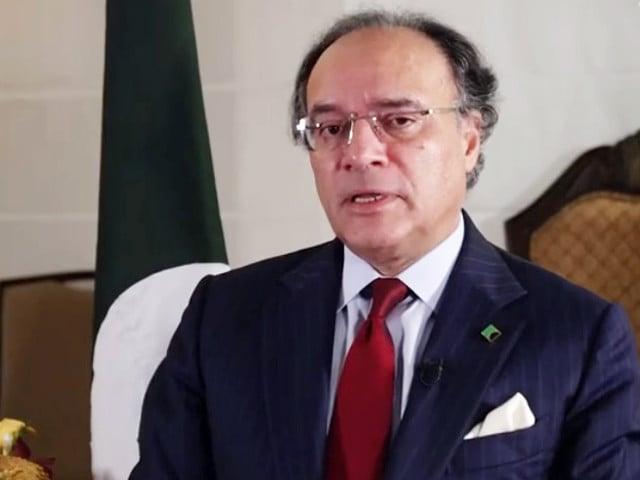The Federal Minister of Finance, Muhammad Aurengzeb, has reaffirmed the government’s commitment to support the private sector, stating that trade is not the responsibility of the government.
Speaking at the Insurance Impact Conference organized by the Pakistan Stock Exchange and Securities Commission (SECP), it emphasized the need for structural reforms and innovation in the insurance sector.
Aurengzeb highlighted the government’s progress in achieving macroeconomic stability in the last 12 months, citing a “positive” meeting with the head of the International Monetary Fund (IMF), which welcomed Pakistan’s structural reforms.
“The details of economic stability are known by all, but now we must focus on reforms,” he said.
The finance minister emphasized that affordable and efficient insurance solutions are essential to create a “insured Pakistan”, adding that the country needs modern approaches for life, health and general insurance.
“The discussions about climate change at this conference are a great step forward because they play a crucial role in the insurance sector configuration,” he said.
He also suggested privatizing public sector insurance companies that continue to operate with losses. “If state insurance companies have a deficit, they must be delivered to the private sector,” said Aurengzeb.
The minister reiterated that the government’s role is to provide policy frames and facilitate companies instead of participating in the trade itself.
“Our approach is to create a conducive environment for the private sector to prosper,” he added.
Prime Minister Muhammad Shehbaz Sharif met with Kristalina Georgieva, managing director of the International Monetary Fund (IMF) on Tuesday to discuss the ongoing IMF program of Pakistan and macroeconomic stability achieved through the Government Comprehensive Reform Agenda.
The meeting took place outside the World Summit of Governments (WGS) 2025 in Dubai.
According to a statement from the office of the Prime Minister, the discussion focused on Pakistan’s commitment to implement structural reforms and maintain fiscal discipline, which have been fundamental to restore economic stability.
These reforms are considered crucial to boost long -term sustainable growth.
Prime Minister Sharif highlighted the progress made under the installation of IMF extended funds (EFF), which has played a key role in stabilization of Pakistan’s economy and on the path of long -term recovery.
He reaffirmed the government’s commitment to maintain the impulse of the reform, particularly in areas such as fiscal reform, the efficiency of the energy sector and the development of the private sector.
Georgieva praised Pakistan for her effective implementation of the IMF program, recognizing the improvement of economic performance with the increase in growth and decreased inflation.
He recognized the recovery and economic growth of Pakistan, emphasizing that the country is in a positive trajectory.
The IMF managing director also praised the leadership and personal commitment of Prime Minister Shehbaz Sharif to boost the reform agenda, which has been crucial to achieve economic stability.
She reiterated the continuous support of the IMF to the reform efforts of Pakistan, emphasizing the importance of fiscal discipline, structural reforms and good governance to guarantee economic stability and long -term growth.




